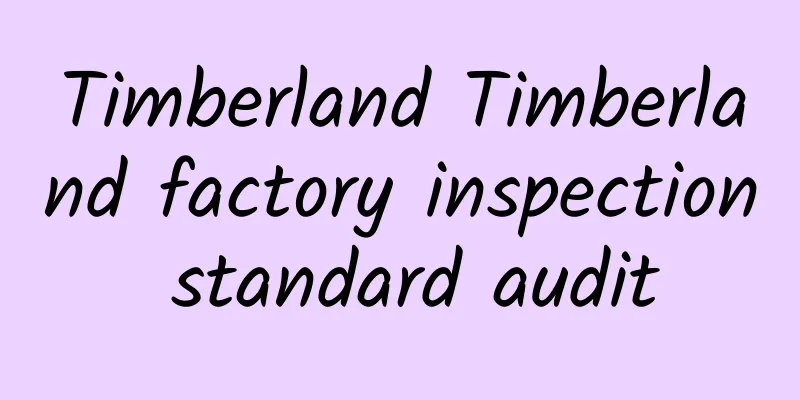What are the key points and difficulties in GRS certification?

|
1. Social criteria, which apply to any link in the GRS certification chain and start from the waste collection station. This also means that the supplier of waste is not yet within the scope of certification. The standard is working to extend the social criteria to the supply chain of waste collection stations for recycling purposes. 1) Guidelines on workers’ rights: The employment relationship must be based on national laws and policies. Workers have the right to leave the company after giving reasonable notice. No compulsory or bonded labor is permitted in certified companies. Identity documents or (monthly) deposits should not be held by the certified company. Any form of abuse or threat of abuse, as well as any physical or psychological punishment, is prohibited. Wages should be paid according to the weekly work standard and shall not be lower than the national statutory standards or the benchmark wages stipulated by the industry. Certified companies shall not deduct any form of wages from workers unless the deduction is permitted or required by national law. Workers should also know the details of their wages each time they are paid (for example, through a pay slip or registration form). Certified companies should have a recruitment policy that prohibits the termination of employment or dismissal of workers based on race, class, nationality, region, age, disability, gender, marital status, sexual orientation, community affiliation, or political beliefs. Appropriate procedures shall be established and, where appropriate, action shall be taken to ensure that workers’ representatives are not discriminated against. These representatives shall have access to relevant persons and facilities to carry out their representative duties. Certified companies should grant all workers the right to freely join or form trade unions and to actively negotiate on wage issues. ...... 2) Guidelines on worker health and safety: Measures to deal with any possible risks in the working environment. Certified companies are required to submit a recent written assessment of their workplace safety and health risks. Certified companies must appoint a senior manager to be responsible for all health, safety and training matters. All workers must wear appropriate protective clothing (protective masks, shoes, gloves) and these clothing must be purchased or rented at the expense of the certified company. The certified company must have a current written health, safety and hygiene qualification manual that includes the risk assessment issues mentioned above, such as accident and emergency procedures, hygiene procedures, etc. 2. GRS certification environment, environmental management guidelines: Certified companies must have an environmental policy manual. The manual must contain: The responsible person of the registered company; documented procedures for minimizing and monitoring waste and emissions; Procedures for what actions a registered company should take in the event of a wastewater incident; There must also be documented employee training on water and energy conservation, appropriate use and minimization of chemicals, and correct disposal of chemicals. The manual must also include improvement plans adopted to address the above issues. Certified companies must maintain a comprehensive documentation of chemical, energy, water consumption and wastewater treatment, including the handling of wastewater sediments. Wastewater that has not been treated shall not be discharged, but the following treatment methods may be used: The wastewater does not contain any additives and should be cooled to below 40℃/104℉ before discharge. Wastewater with a pH value less than 6 and greater than 9 should be neutralized until it is between the above limits. Wastewater treatment within the company - Wastewater treatment by local authorities. Third, traceability is very critical. The source of recycled materials in your factory must comply with the traceability in the GRS standard. Are the recycled materials purchased? Or are they scraps from the production process? If they are purchased, you need to provide purchase proof, such as purchase invoices, TC certificates, supplier qualifications, etc. How these materials are put into production during the production process, how the factory manages from the entry of raw materials to shipment, and many other aspects are considered from hardware, software, and personnel training. In short, in order to meet the GRS certification requirements, environment, social responsibility and traceability are indispensable.
|
<<: WCA factory inspection introduction and content
>>: What is GRS Global Recycling Standard Certification?
Recommend
Decoding the two key codes for Alibaba Cloud's successful ecosystem operation: openness and two-way empowerment
As early as when he joined Alibaba Cloud in 2011,...
What is Oberlo? How much does Oberlo cost?
What is Oberlo? Oberlo started as an internal pro...
What are some examples of eBay listing optimization? What are the methods?
eBay seller search ranking rules require sellers ...
JOOR--"Clothing" + "Retail" B2B
What is JOOR? Founded in 2010, JOOR is a B2B e-co...
What should I pay attention to when applying for eBay cross-border certification? What materials should I prepare?
eBay cross-border certification matters needing a...
What is Wahool? What services does Wahool provide?
What is Wahool? Wahool was founded in 2014 by Bei...
Messi pays more attention to the points when inspecting the factory
Macy's, which has a century-old history, has ...
Manual Targeting--Amazon manual advertising
Manual Targeting is Amazon’s manual advertising. ...
The latest "Implementation Rules for Organic Product Certification"
The latest "Implementation Rules for Organic...
What are the common violations in Chicos factory inspections?
Chicos factory inspection common violations: 1. P...
What are malicious negative reviews? What should you do if you encounter malicious negative reviews?
What are malicious negative reviews? Malicious ne...
Li&Fung Factory Audit Supplier Guidelines
Li&Fung's Supplier Code of Conduct stipul...
Warning signs required for BSCI factory inspection-Warning signs for hazardous chemicals
Warning signs required for BSCI factory audit: ch...
Benefits of Timberland factory inspection
Benefits of Timberland factory inspection (1) Est...
6 Ways to Optimize Your “Best Match” Listings on eBay
eBay is one of the most mature e-commerce marketp...









